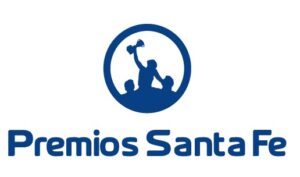The Enrolled Agent (EA) designation is one of the most valuable certifications in the tax preparation industry. Passing the EA exam proves that you have extensive knowledge of US tax law, as well as the legal and ethical responsibilities required of an enrolled agent. EAs take continuing education courses each year to keep up with the changes and have research tools at their disposal to constantly monitor updates.
Affordable Expertise
Being an Enrolled Agent is right for you if you are considering a career in tax. The exam is long and challenging, but you can conquer it with the right study materials and prep courses. To that end, below are 5 of the best study materials today, perfect for anyone hoping to become an enrolled agent. Start by ensuring that the study material for EA exam is of high quality and tailored to your learning style and pacing requirements. Becoming an EA is a great fit if you’re an accounting professional looking for a rewarding career that is both challenging and satisfying. According to the National Association of Enrolled Agents, there are over 50,000 enrolled agents in the United States and other countries.
What are the potential career benefits of becoming an Enrolled Agent?
For example, they sign off on audit statements, offer business and financial advice and can represent clients before the IRS. Jump ahead to learn more about CPAs, including the requirements they must meet to earn the credential. One of the primary roles of an enrolled agent is to represent taxpayers before the IRS. EAs can advocate on behalf of their clients during audits, appeals, and collections. They can also negotiate with the IRS to resolve issues such as back taxes or penalties.
Representation
EAs undergo rigorous training and testing to master U.S. tax codes and IRS procedures. This means they have a far deeper understanding of tax laws than the average tax preparer, making them invaluable in both routine and complex cases. Unlike attorneys and CPAs, who may or may not choose to specialize in taxes, all enrolled agents specialize in taxation. While CPAs and attorneys are licensed by the states, enrolled agents are federally licensed. To become an Enrolled Agent, you must pass the Special Enrollment Examination (SEE), which is a comprehensive three-part exam covering individual tax, business tax, and representation, practice, and procedures.
- By proactively planning your taxes, you can potentially reduce your tax burden and maximize your savings.
- To become an Enrolled Agent, a tax practitioner must pass the SEE administered by the IRS.
- They’ll assist in organizing your financial records, Certified payroll professional, and identifying potential deductions or credits that you may qualify for.
- The hiring of tax examiners is projected to decline 4% from 2020 to 2030 as the growth of the tax examiner industry is closely tied to changes in federal, state, and local government budgets.
- Learn more about the benefits of the designation, including the Enrolled Agent salary and the opportunities you gain as an EA.
- EAs are authorized to practice and represent clients on tax issues regarding both individual and business tax returns.
Continuing Education
Hiring a tax professional can save you stress, and potentially money — especially if your situation is complex or you want expert help when dealing with the IRS. And don’t assume tax pros with one type of credential will always charge more than advisors with other types. Pricing depends more on the services and relationship you want what is an enrolled agent for taxes than on the credentials,” Wells says.
- Additionally, you need to pass a background check conducted by the IRS to ensure you meet the agency’s suitability requirements.
- For instance, in California, the salary will be comparatively higher than any other location in the US.
- The story of EAs begins after the Civil War, a time when fraudulent claims for damages overwhelmed the federal government.
- Here, the agent would decide this based on the rules of taxation in the US.
- A Certified Public Accountant (CPA) is a licensed accounting professional.
Tax planning involves strategically analyzing your financial situation to ensure you’re making the most tax-efficient decisions. An enrolled agent’s salary can vary depending on several factors, including level of experience, client type, and the region of practice. The US Bureau of Labor Statistics lists the median yearly base salary for Enrolled Agents as $56,780. Other sources, including Glassdoor, Salary.com, and Indeed, place the average base pay in that same $50k-60k/year range.
An accountant is a financial professional who helps individuals and businesses manage their tax obligations. Their job goes far beyond just filling out forms — they make sure your tax returns are accurate and filed on time, find ways to legally reduce your tax bill and help you comply with tax laws. Choosing the right tax professional can make a big difference for your peace of mind. But with so many options — from tax accountants to tax attorneys, certified public accountants (CPAs) to enrolled agents (EAs) and more — it’s not always clear who’s best for your situation. As federally licensed professionals, EAs hold a credential recognized across the U.S., making them highly sought after. Their specialized focus on taxes gives them a competitive advantage over general accountants and seasonal tax preparers, further solidifying their standing in the industry.
Not all CPAs specialize in taxation, but those who do often provide similar services to EAs. They are well-versed in legal issues related to taxes, such as tax disputes, litigation, and estate planning. Tax attorneys are often sought for complex legal matters and can represent clients in tax court. Enrolled Agents (EAs) are tax professionals licensed by the IRS who possess unlimited representation rights. This means that they can represent taxpayers on any tax matters before the IRS, including audits, payment/collection issues, and appeals. EAs are authorized to practice and represent clients on tax issues regarding both individual and business tax returns.
Nothing included herein should be taken as a guarantee, warranty, prediction or representation about the results of your situation. EAs help clients understand their tax obligations and ensure they comply with federal and state tax laws. This includes advising on record-keeping, reporting requirements, and other tax-related matters.
They can assist in responding to IRS notices, audits, and examinations, ensuring that your rights as a taxpayer are protected throughout the process. Moreover, Enrolled Agents with a US taxation course background stay up-to-date with constantly changing tax laws and regulations. This continuous education allows them to offer informed advice tailored to your specific tax situation. By leveraging their expertise, you can navigate complex tax matters with confidence and ensure compliance with tax laws. An enrolled agent (EA) is a tax professional authorized by the United States government to represent taxpayers in matters regarding the Internal Revenue Service (IRS). EAs must pass an examination or have sufficient experience as an IRS employee and pass a background check.



















